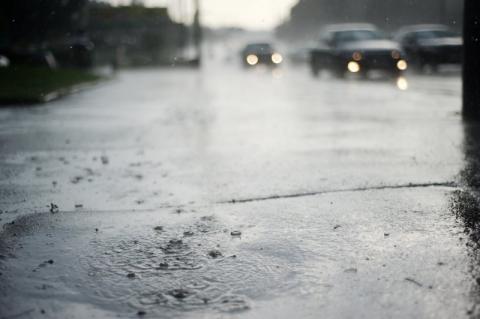PHA issues health advice following flooding

Flooding has affected a number of areas across Northern Ireland causing disruption and the Public Health Agency (PHA) is reminding people of the potential public health risks associated with flash flooding.
Dr Anne Wilson, Public Health Consultant for the PHA, said: "In relation to flooding, the main risk relates to injuries caused by hidden dangers under the water such as missing manhole covers or people falling into fast flowing waters.
“There is also a serious danger posed by carbon monoxide fumes from the indoor use of generators and dehumidifiers to dry out buildings, if they are not properly ventilated.”
Dr Wilson explained the risk of contracting illness as a result of flooding is generally low in this country as harmful microbes in floodwater usually become very diluted.
“However, as it is not always clear whether water is contaminated or not, the public are urged to exercise caution and assume that flood water is contaminated,” she added.
There are a number of precautions to prevent health problems if there is a flood situation in the home, including:
• Wherever possible try to avoid coming into direct contact with floodwater;
• Do not let children play in floodwater;
• Use rubber gloves when cleaning up;
• Wash hands after being in contact with flood water, sewage or anything contaminated by these;
• Wash children’s hands regularly;
• Clean toys that have been in flood water with disinfectant;
• Cover cuts or open sores;
• Don’t eat any food that has been in contact with flood water;
• Clean all surfaces with disinfectant before any food is placed on them;
• Contact your GP if you or a relative develops a stomach upset following flooding.
Dr Wilson added: “If your water mains are affected and you have been advised to boil your tap water, this will be for drinking and for food preparation. This water should be brought to a boil and then allowed to cool before it is used.
“Boiling water can scald, so it is safer to use a kettle rather than pots and pans. If you must, use pots and pans then take care with young children and vulnerable people. Water from the hot tap is not suitable for drinking in any circumstance.”
For further information click on Public Health Agency Flooding Guidance
Contact the PHA Press office on 028 90553663.
Further information can also be found on:
Belfast City Council : http://www.belfastcity.gov.uk/flooding/index.asp
NI Water: http://www.niwater.com/major-incident-details.asp
Health Protection Agency: http://www.hpa.org.uk/Topics/EmergencyResponse/ExtremeWeatherEventsAndNaturalDisasters/EffectsOfFlooding/
